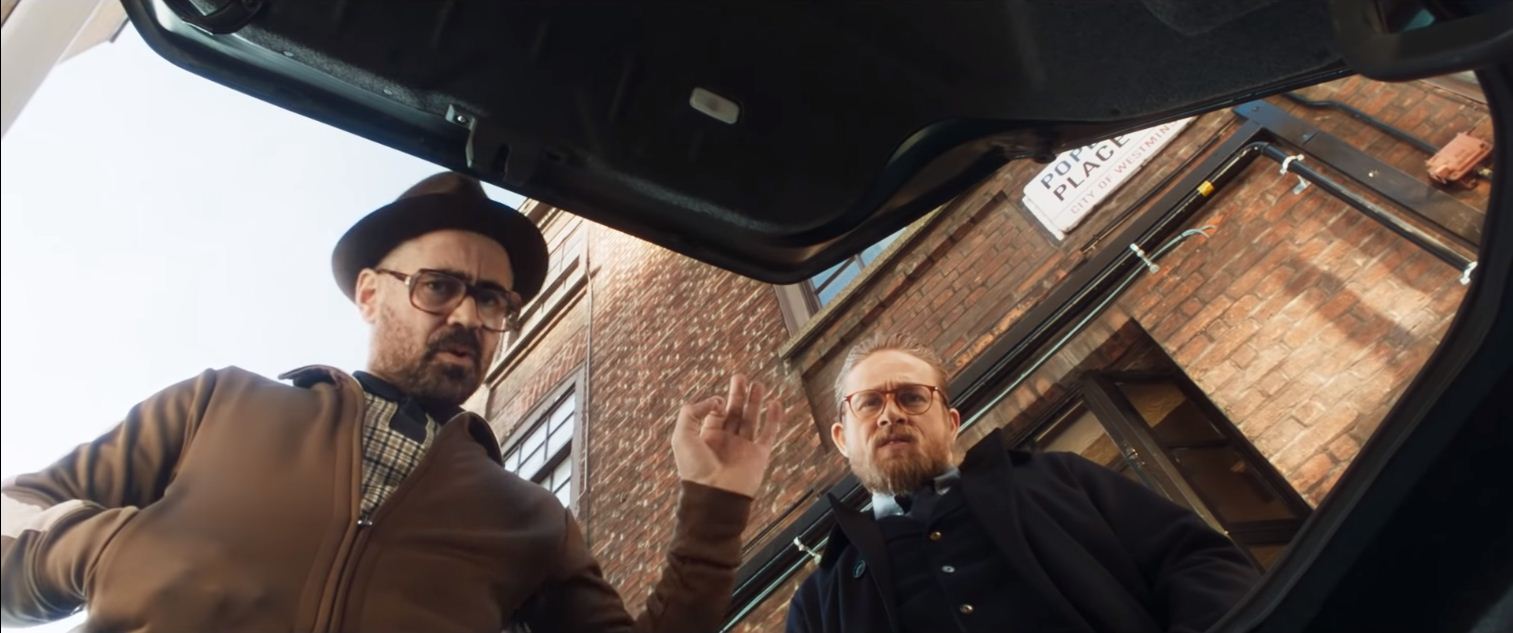Bear with me, there’s a point to this. At the end of his poem The Circus Animals’ Desertion, William Butler Yeats realises that the ability to be original has eluded him and that he can no longer conjure up “masterful images”. And so he returns, for inspiration, to the beginning. “I must lie down where all the ladders start,” he writes. “In the foul rag and bone shop of the heart.”
He is, essentially, describing Guy Ritchie’s career as expressed in his smart new movie, The Gentlemen. The director’s previous film, the execrable Aladdin, was his Circus Animals’ Desertion moment. Until then, after his brief turn-of-the-millennium flowering of the mockney gangster classics Lock, Stock and Two Smoking Barrels and Snatch, Ritchie’s arc had traced a slow downward path. His two Sherlock Holmes movies were serviceable but uninspiring. His adaptation of The Man from U.N.C.L.E. was formulaic and his mythical blockbuster King Arthur: Legend of the Sword was profoundly tedious. Aladdin, however, demonstrated a new level of lifelessness. It was a film so inert and so devoid of personality that there was only one place that Ritchie could possible go. Back to the foul rag and bone shop of the heart.
Which is lucky for us. Because The Gentlemen is great fun. Yes, it’s ridiculously dated. Watching it, at times, feels like being teleported to the late 1990s (you expect Champagne Supernova to be playing in the foyer afterwards), when Ritchie’s characters burst on to the screen in elaborate scams involving marijuana plants, dopey rich kids, Irish boxers, machine guns and enough Tarantino references to shake a jellied eel at.
It’s all here, to the very last Irish boxer — this time Colin Farrell picks up the Brad Pitt pugilist role from Snatch with aplomb. Farrell is called Coach and he’s drawn into the labyrinthine plot when his young sporting protegees ransack an underground marijuana plantation belonging to the millionaire dealer Mickey Pearson (Matthew McConaughey, pleasingly low-key) who is facing simultaneous threats from an American gangster called Cannabis Kingpin Mathew (Jeremy Strong from Succession), a Triad mobster called Dry Eye (Henry Golding) and, perhaps inevitably, some Russian hitmen.
The biggest thorn in Pearson’s side, however, is the tabloid journalist and professional blackmailer Fletcher, played by Hugh Grant in an ironic casting coup that’s not quite as hilarious as it thinks it is (he’s from Hacked Off, and now he’s playing a hack! Get it?), but benefits immensely from Grant’s silky turn. He delivers Fletcher’s lines with a lascivious purr, somewhere between Michael Caine and Charles Hawtrey. He is the voice of the movie, an unreliable storyteller who is recounting the events to Pearson’s major-domo, Raymond (Charlie Hunnam), as they have been written down, culled apparently from real life, in his debut screenplay. It’s a nice touch, or at least an acknowledgment that Ritchie’s mockney gangster movies have always been fairytales, despite the macho posturing.
There’s plenty of that here too. “It’s a good old-fashioned cock-off,” Fletcher says when discussing one of Pearson’s encounters with a rival. There are also some quips worthy of Chaucer. When Pearson’s wife, Rosalind (Michelle Dockery, in full cockney anti-Downton voice), is told that a robbery may be coincidence she says with a sigh, “It ain’t a coincidence. There’s f***ery afoot!”
Those with sensitive dispositions will struggle with the bluer elements of Ritchie’s dialogue. The film carries an ‘18’ certificate and one can only guess that it’s because of the phenomenal number of c-bombs that are dropped throughout. A typical exchange in a drug den begins with a heroin addict boasting to Raymond about the weights that he lifts in the gym, to which Raymond replies dismissively: “You couldn’t lift a wheel of cheese, you c***.” Elsewhere, inquisitive countryside ramblers are “busy c***s”; Pearson, in his early days, was “a proper hardcore c***”, and a mobster complains of being mistaken for “some kind of c***”.
The visual style is typically sharp and seems to have been inspired by a particularly lavish men’s fashion supplement (cloth caps, hunting jackets, trimmed beards and cigars). The performances are amiable, with Grant and Farrell the standouts. The identity politics are very wobbly indeed (dodgy “gay” banter, robust gender stereotypes and an argument about whether the insult “black c***” is actually racist), but , well, it’s Ritchie. It’s his hermetically sealed universe. It’s like looking for a reasonable and intelligent discussion about woke politics in Chas and Dave’s The Sideboard Song. Better just to sit back and let the f***ery flow.










